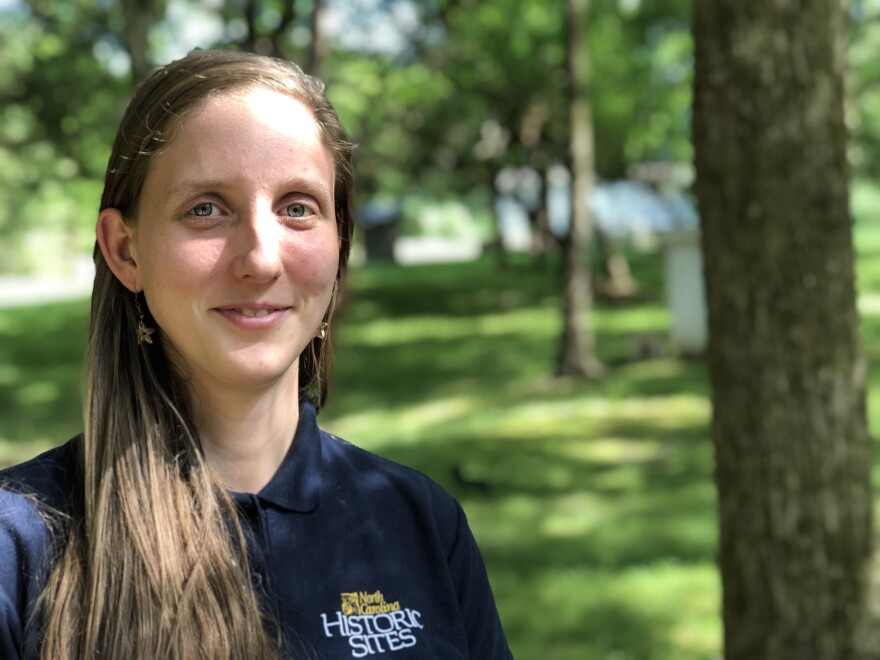This Mother’s Day weekend, the Stagville State Historic Site in Durham is remembering the enslaved women who once toiled on the plantation. Researchers are still discovering the voices of these women.
The narratives shared on Mother's Day will include stories about the women's families, their work, survival and resistance. Vera Cecelski, site manager at Historic Stagville, says the plantation has a special history.
“So many of the families who left plantation land here followed the road, and followed the railroad tracks and went into Durham," said Cecelski. "And they became part of Braggtown, they became part of the West End, they became part of Hayti and these very powerful black communities in Durham.”
One of those women whose story will be told is midwife Amy Sowell Shaw. Cecelski helped follow Shaw’s family line through her descendants, many of whom still live in Durham.
“She was freed after the Civil War at Emancipation when she was about 12 years old. And then she lived until her death, until 1948. So she probably taught multiple generations of women her knowledge of being a midwife and being a health provider here," said Cecelski.

Stagville was one of the largest plantations in North Carolina, maybe even one of the largest in the South. The Bennehan and Cameron families owned nearly 30,000 acres of land and enslaved more than 900 people. Their cash crops, including tobacco and cotton, made them rich.
Another enslaved woman’s narrative to be featured at Saturday’s Mother’s Day event is the life of Mary Walker. Cecelski says Walker was one of only three individuals who were able to take their freedom and escape from Stagville.
“And a lot of what we see in her story is the fact that, it comes across through her experience of freedom, that her freedom was not really freedom as long as people that she loved were being held captive," said Cecelski.
Walker wouldn’t be able to reunite with family members for 17 years. Part of the Walker Stagville story may sound familiar. Her daughter Agnes Walker, also called Aggie, was the inspiration behind the American Girl Doll, known as Addy Walker.
Women and girls, black and white, have visited Stagville with their Addy dolls in tow. Last year, the Addy doll turned 25 years old and there was a party to mark the occassion.
Lacey Hudspeth of Durham says she has had her Addy doll all of those years.
“I lost her clothes and shoes. I brushed her hair, I braided her hair, I re-did her hair, over and over and over again," said Hudspeth, smiling. "She’s like missing an eye, she’s a very loved doll. She slept with me every night. She just taught me a lot about courage.”
Hudspeth has handed down her doll to her niece. Meanwhile, Gretchen Inkumsah of Raleigh gave her daughter, Celeste, an Addy doll three years ago. She loves it.
"Well, because she looks like me and I really enjoy reading her books," said 8-year-old Celeste Inkumsah.
One enslaved Stagville woman who will be featured during the tour is not as well known as Mary Walker and Amy Sowell Shaw. In fact, historians still don’t know her name. They only know she tried to burn down the home of the Cameron in-laws, with the slave-holding family inside. Cecelski says one can only imagine what drove her to make that decision.
“Perhaps to free herself. Perhaps to give herself a moment of liberation. Perhaps as a response to the awful things she experienced in that building," said Cecelski.
All they know is she was sent to another plantation.
While Stagville continues its research on enslaved women at that site, North Carolina’s Department of Natural and Cultural Resources has kicked off a series of events about women who have changed the world.
Next year marks the 100th anniversary of women’s suffrage.










